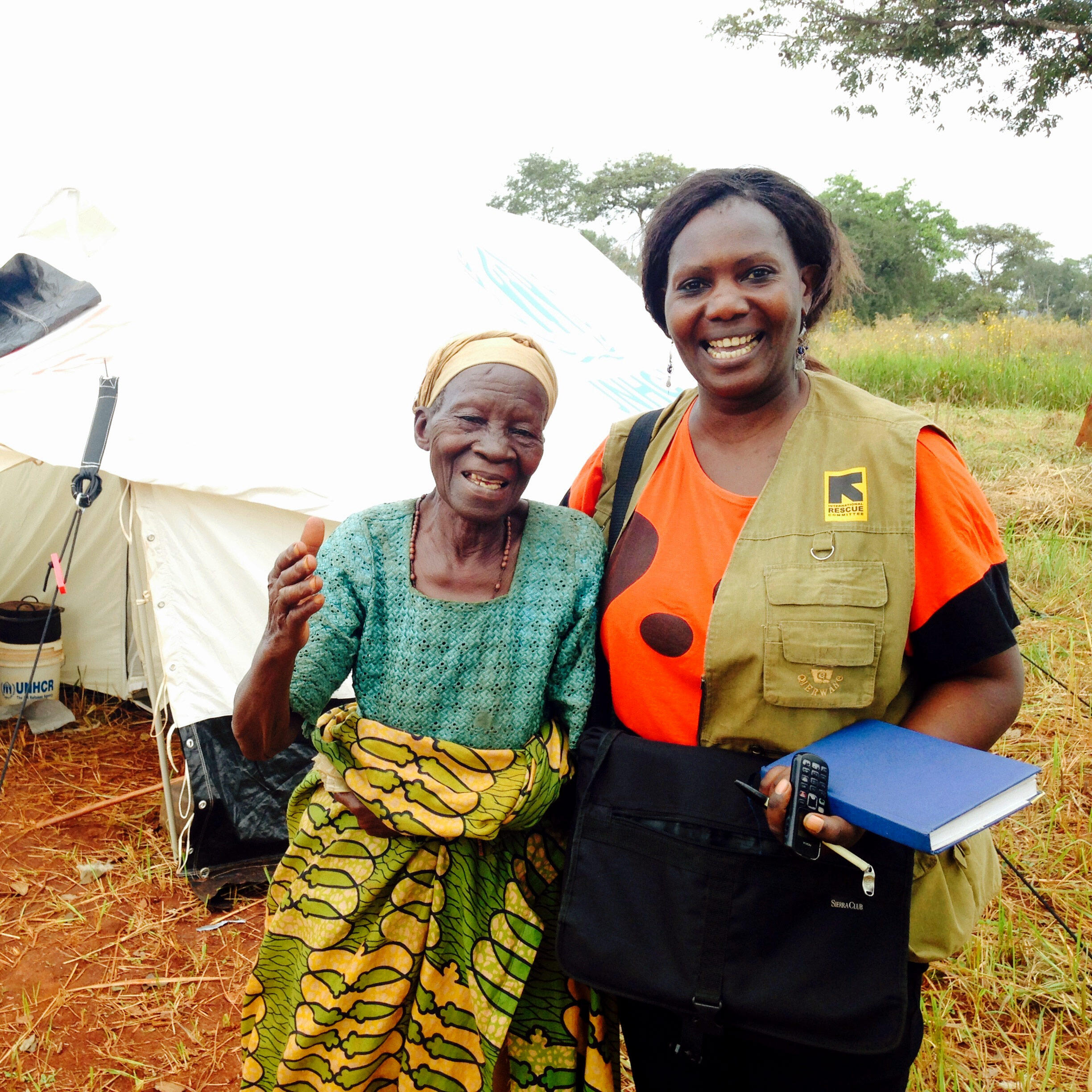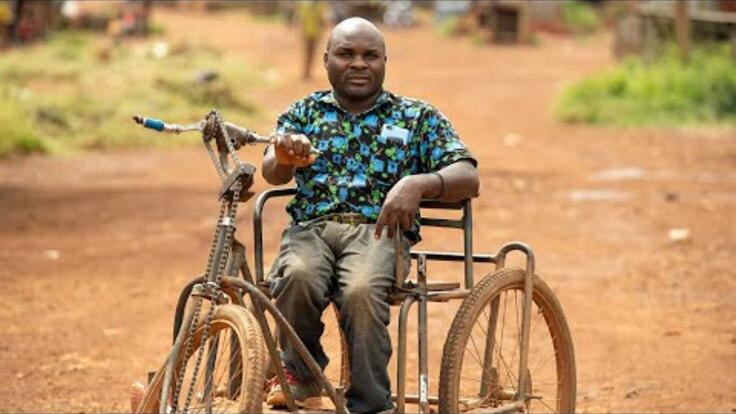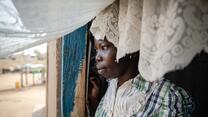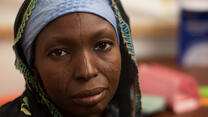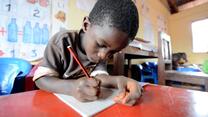Country facts
- Total population: 54.2 million
- Refugees in Tanzania: 350,000
- Rank in Human Development Index: 151 of 189
IRC response
- Started work in Tanzania: 1993
For over half a century, Tanzania has been a country of asylum, hosting one of the largest refugee populations in Africa. The International Rescue Committee began operations in the Kigoma region of northwestern Tanzania responding to a large influx of refugees from the neighbouring countries.
Tanzania plays an important role in the region as a host to refugees who have fled violence in neighbouring countries. It currently hosts refugees from the Democratic Republic of Congo and Burundi, and has hosted large numbers from Rwanda in the past. The country is home to the world’s third largest refugee camp, Nyarugusu. This influx was caused by ethno-political violence and civil war in these countries, which forced tens of thousands to flee and seek refuge. We currently assist approximately 350,000 refugees in Nyarugusu, Nduta and Mtendeli camps.
Almost 400,000 Burundian refugees fled to Tanzania in 2015 after disputed elections. No new arrivals from Congo or Burundi have been granted access into the country since 2018. There is a program that helps Burundians seeking to return to their home country.
Although Tanzania has one of Africa’s fastest growing economies and populations, the country is not without its challenges. Surrounded by conflict, Tanzania has a long history of hosting refugees from neighbouring countries. Despite international assistance, the last influx of Burundian refugees following contested elections in 2015 strained the country’s already limited resources. Refugee camps became overstretched and the crisis has been chronically underfunded.
Many Tanzanians also continue to face a number of challenges. Vulnerable populations, especially those affected by crisis, still lack access to basic services, unemployment is growing faster than jobs are created, and social services are subpar. Additionally, frequent smaller scale disasters, both natural and man-made, threaten economic growth and efforts at poverty reduction.
The IRC’s mission is to help people whose lives and livelihoods are shattered by conflict and disaster to survive, recover and gain control of their future.
We are investing in the host communities in Kigoma region and working to support education, protection and health services for the most vulnerable groups, including women and girls and people with disabilities and other special needs. We are helping by:
- working with leaders of refugee communities to prevent violence against women and bolster women’s empowerment;
- providing counselling services and support to survivors;
- ensuring the most vulnerable, especially, women, children, and persons with special needs, have access to health care and other critical services;
- supporting asylum seekers and refugees with basic healthcare needs and referrals, and protection services at the transit centre in Kigoma;
- working with local government officials and community leaders to ensure children are protected from abuse and exploitation;
- ensuring that children affected by displacement and crisis have access to safe and quality education;
- placing unaccompanied children with foster families for care and support;
- creating education and employment opportunities for youth;
- educating young refugees about reproductive health and HIV/Aids;
- providing youth – particularly girls – with social and recreational activities as well as lifeskills training that can help them cope with crisis.
While conflict threatens in the region, the IRC’s work in Tanzania remains critical. It is vital that Tanzania continues to host and protect refugees. We will continue to provide support to refugees in Kigoma and work with host communities throughout Kigoma and elsewhere where there is need. We will also focus on narrowing the gender gap in order to achieve significant measurable improvements in health, safety, education, economic well-being and empowerment.
Through 2020 we are focusing on the following areas:
Health
We will protect people from illness and ensure they receive medical treatment when they need it. We will ensure women deliver in a safe environment with the right care and with the provision of specialized support for survivors of violence. We plan to develop a network of mental health ‘wellness’ centres to ensure those suffering from mental health illness receive the best possible care and treatment.
Safety
People deserve to feel safe in their home and receive support when they experience harm. The IRC will focus on child protection and gender-based violence protection services such as preventing child labor and combating sexual abuse.
Education
School-aged children should have age-appropriate literacy, numeracy, and social and emotional skills. We will expand the number of “Healing Classrooms” providing education to refugee children. We will also provide job skills training to refugees in Nyarugusu as well as other camps and urban areas. The IRC will aim to ensure women and girls are equally skilled in literacy and numeracy, social-emotional, and livelihoods as men and boys.
Power
Marginalized groups should be equally able as the dominant group to choose where and how to live as well as how they are governed. The IRC will prioritise narrowing the gap in access to basic services for people with special needs, refugees who live outside camps, and former refugees who have become Tanzanian citizens.
Download the IRC Tanzania strategy action plan to learn more about our program priorities through 2020.
Through 2020 we are focusing on the following areas:
Health
People should be protected from illness and receive medical treatment when they need it. We plan to focus on providing specialised support for women victims of violence as well as broaden the health services we provide during emergencies.
Safety
People deserve to feel safe in their home and receive support when they experience harm. We will focus on child protection and gender-based violence protection services such as preventing child labour and combating sexual abuse.
Education
School-aged children should have age-appropriate literacy, numeracy, and social and emotional skills. We will expand the number of “Healing Classrooms” providing education to refugee children. We will also provide job skills training to refugees in Nyarugusu as well as other camps and urban areas.
We will work to ensure women and girls are equally skilled in literacy and numeracy, social-emotional, and livelihoods as men and boys.
Power
Marginalised groups should be equally able as the dominant group to choose where and how to live as well as how they are governed. The IRC will prioritise narrowing the gap in access to basic services for people with special needs, refugees who live outside camps, and former refugees who have become Tanzanian citizens.
Download the IRC Tanzania strategy action plan to learn more about our programme priorities through 2020.
